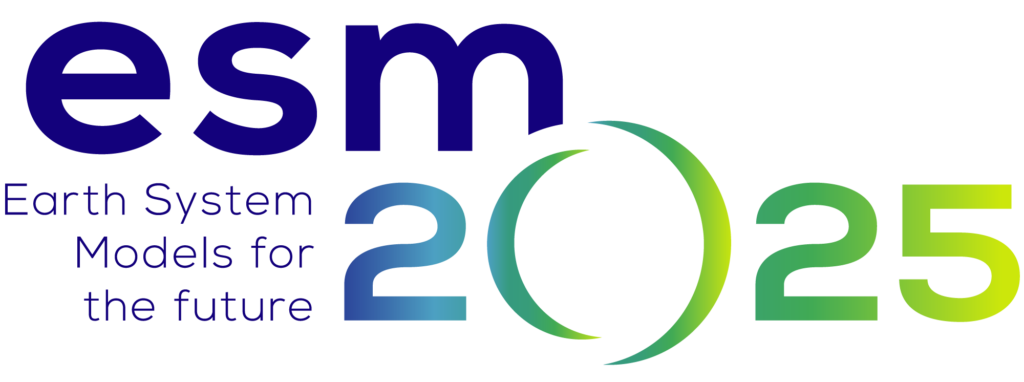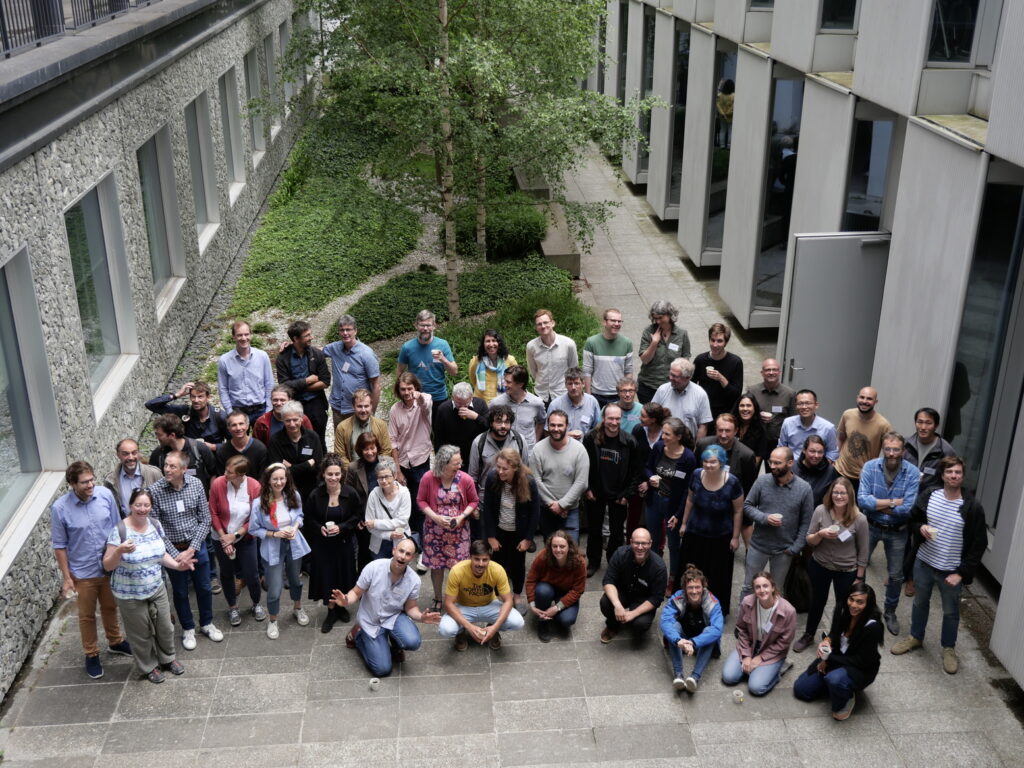
From the 7th to the 9th of June, over 100 researchers coming from various European countries met at the Jussieu Campus of Sorbonne University, in Paris, for our first General Assembly. These were three intensive days of rich exchanges around Earth System modelling and, more generally, climate science.
One year after the start of the project, everyone was happy to finally meet in person! For those who could not come to Paris, all sessions were also trasmitted online.
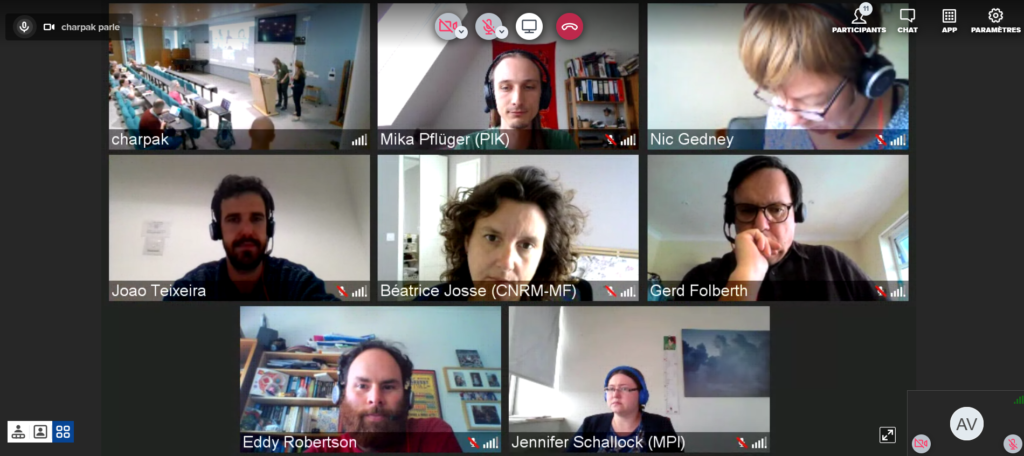
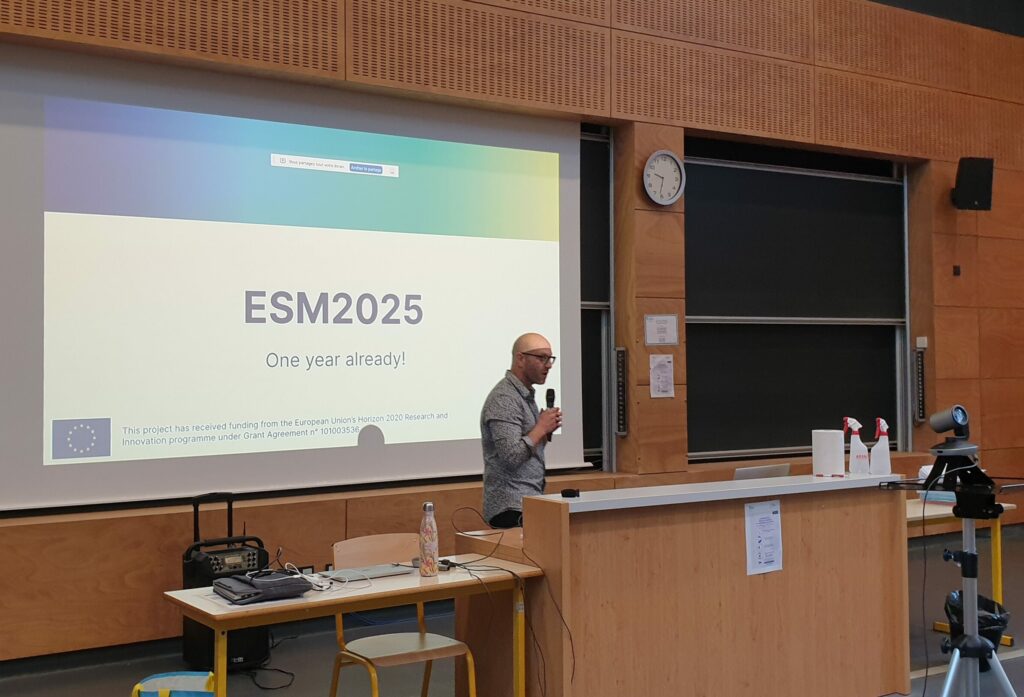
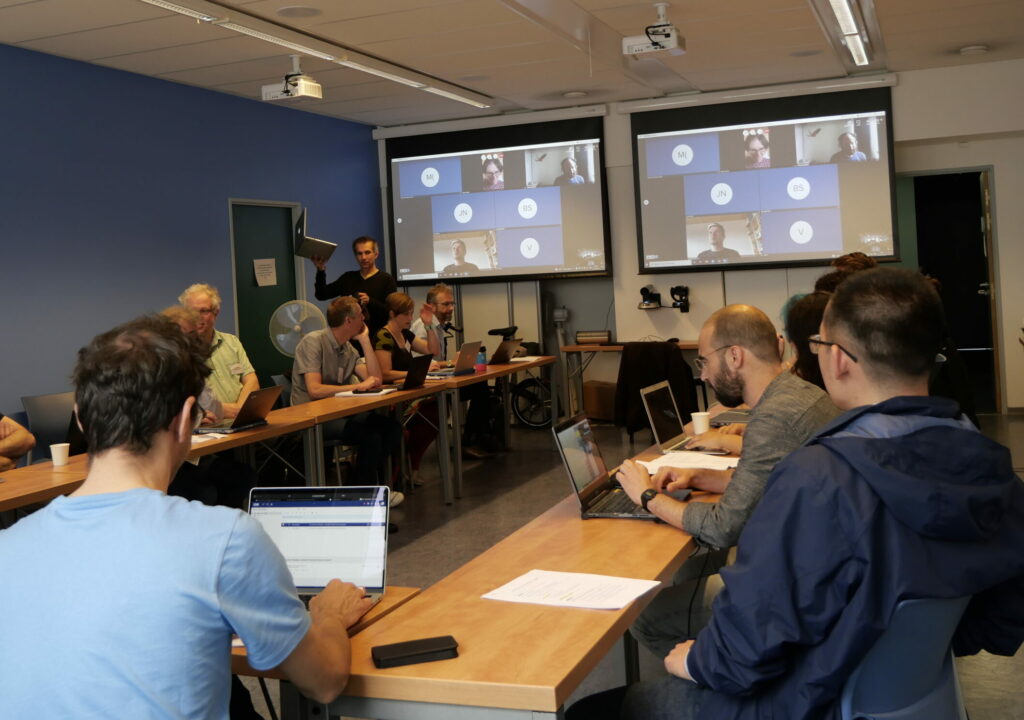
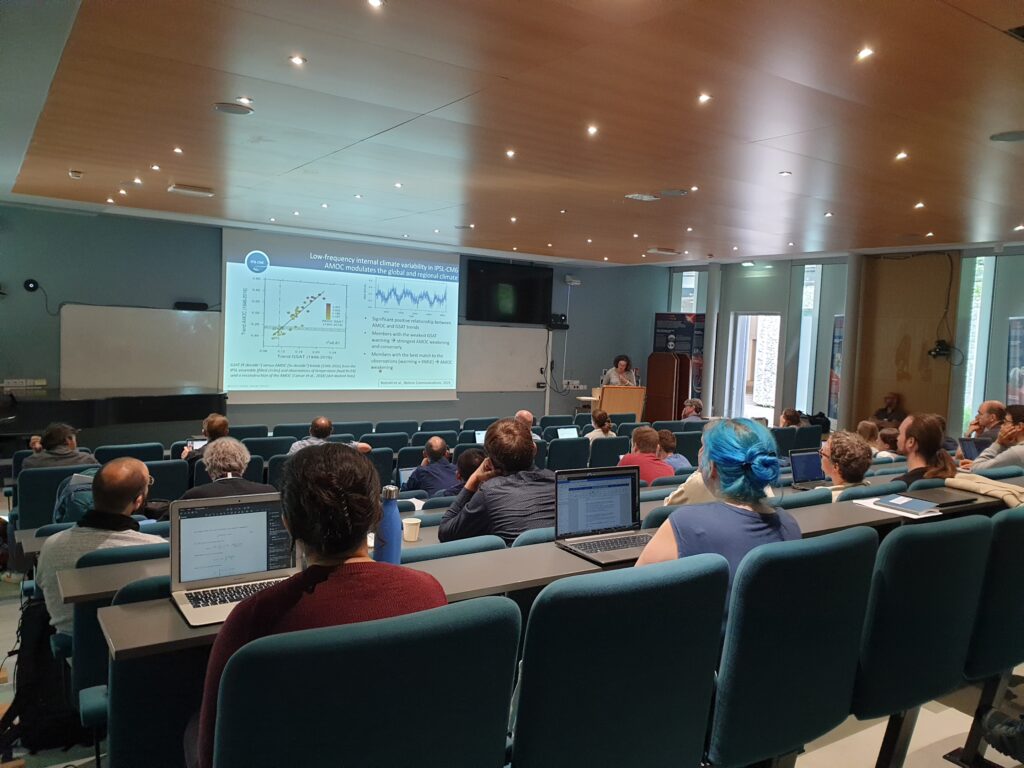
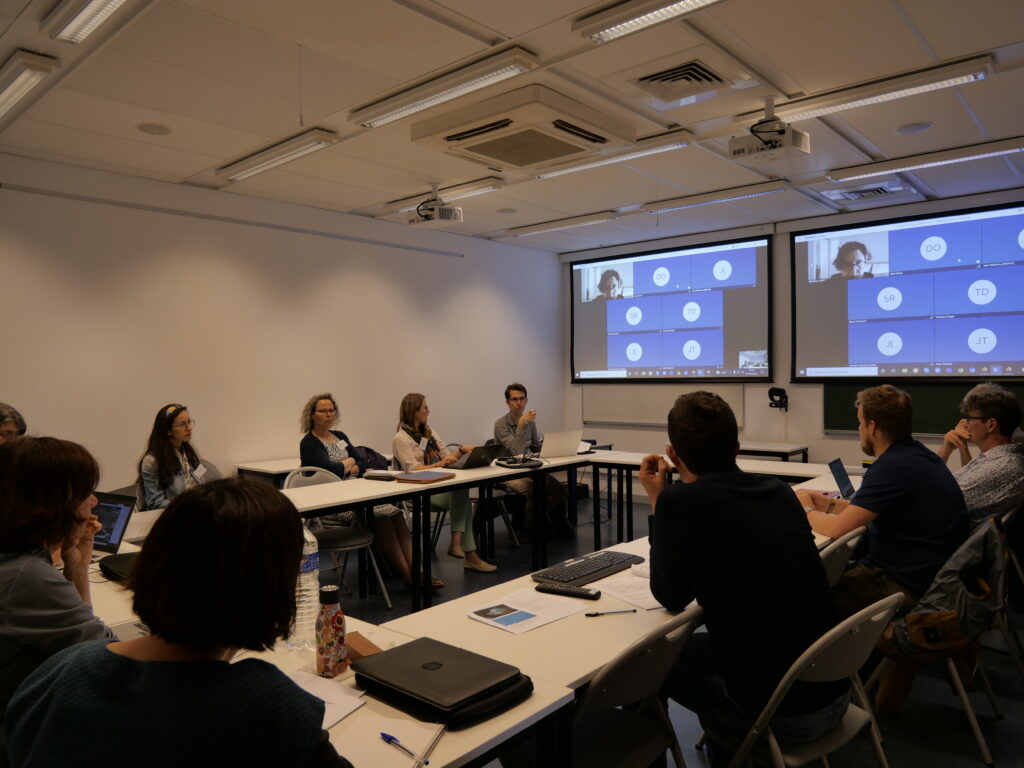
This General Assembly (GA) was the occasion for the leaders of each Core Theme of the project to present their achievements during this first year, and for fruitful discussions to take place among researchers working in the same Work Packages, or on cross-cutting topics such as climate model emulators, model data evaluation, coordinated experiments or integration of land-use modelling across models.
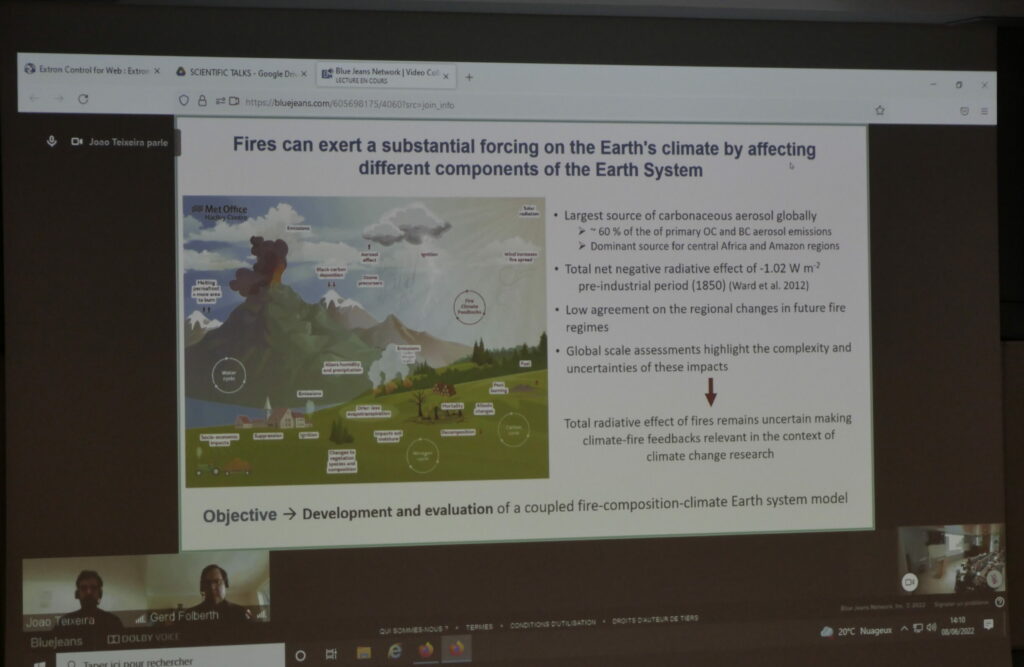
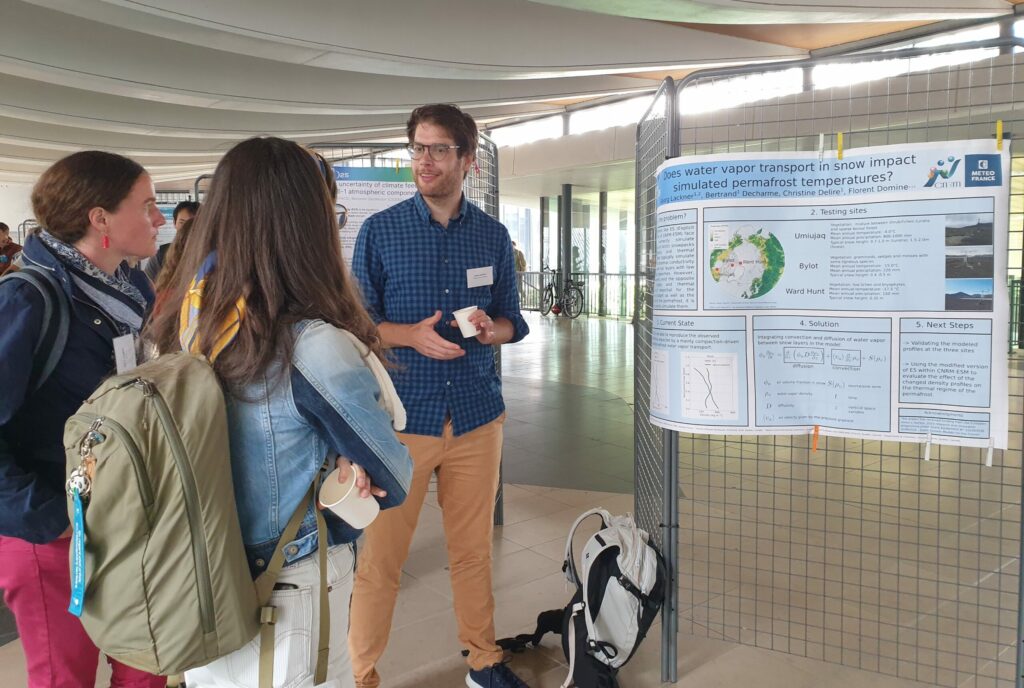
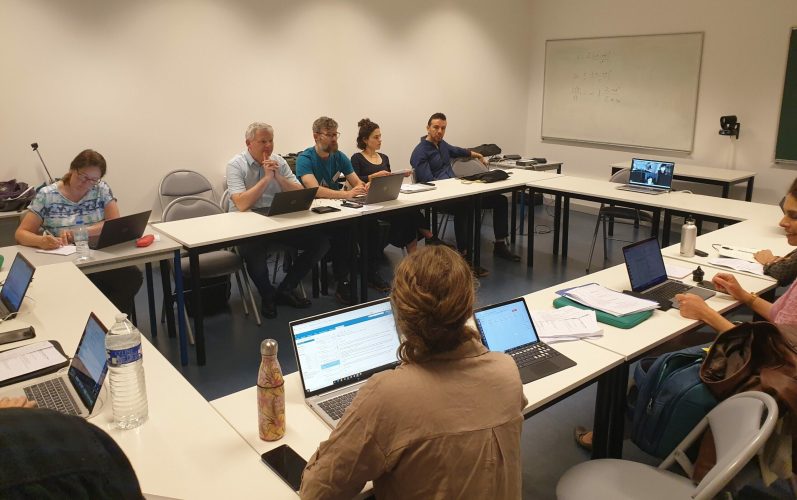
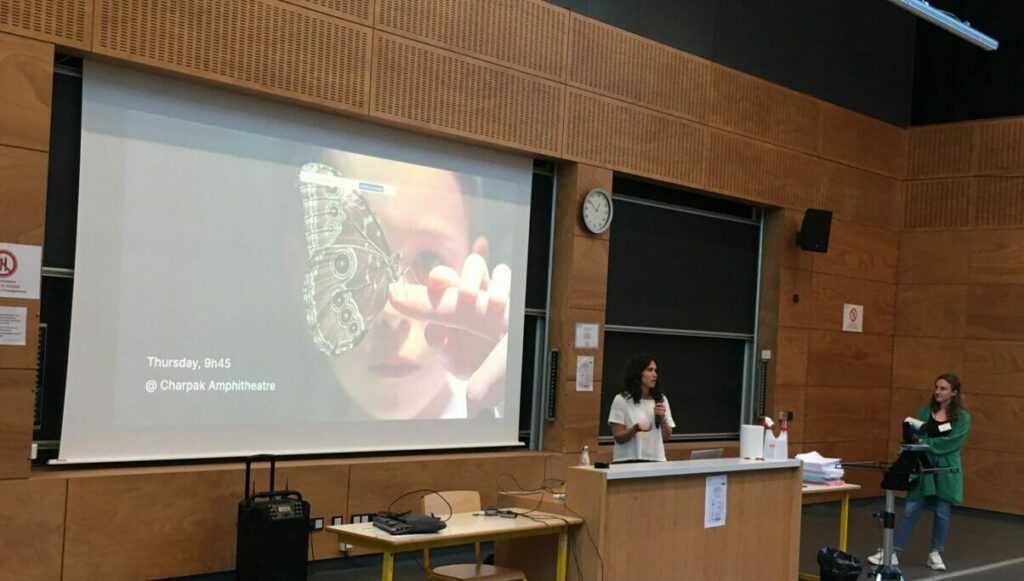
Beyond research work, ESM2025 has science outreach embed in its design, as part of its aim to support a successeful realisation of the Climate Paris Agreement. Hence, during this GA, there were also plenary sessions and working groups dedicated to the project’s scientific communication, education and stakeholder engagement activities.
World Café
This General Assembly was also the occasion to hold another stakeholder engagement event: our first World Café Workshop.
At the top of Jussieu’s Zamansky Tower, researchers and stakeholders gathered around three french-speaking tables and three english-speaking ones for very lively discussions around three broad topics:
#1 Understanding climate change mitigation pathways and the implications to mitigation strategy design.
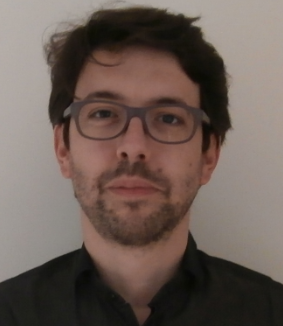
Julien Bueb
Haut Conseil pour le Climat
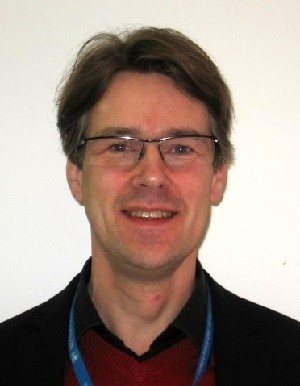
Rob Dellink
OECD
#2 Improving assessment of and response to climate risks.
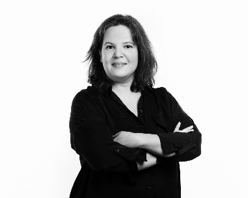
Gaëlle Clain
EcoAct

Brilé Anderson
OECD
#3 Scientific knowledge to inform policy-makers, planners, businesses and the general public: needs and challenges.
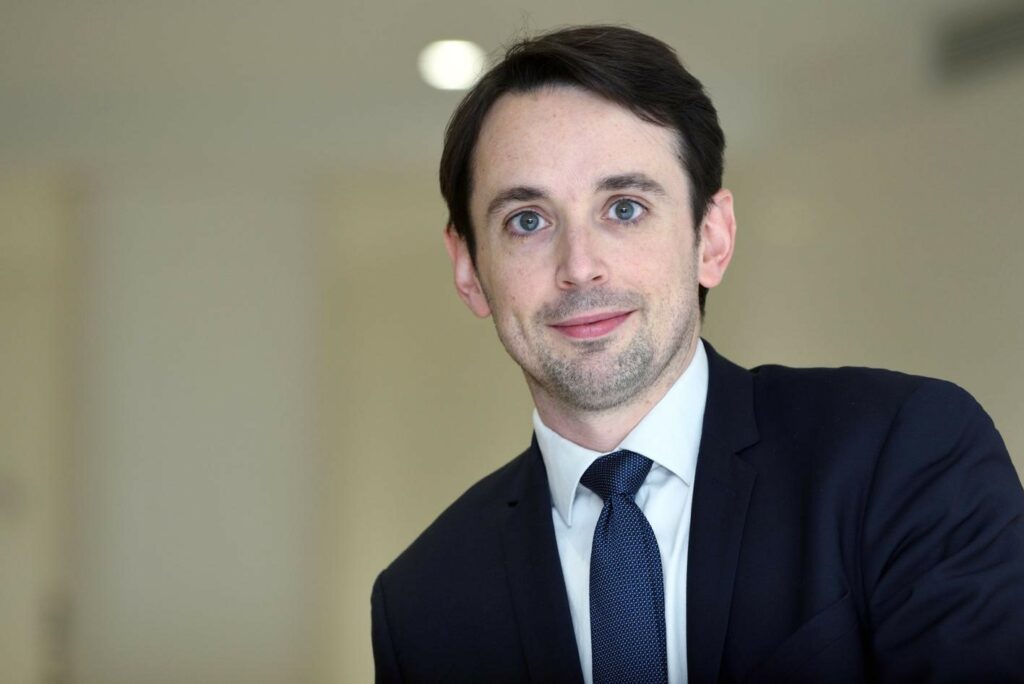
Julien Fosse
Dpt. Développement durable et numérique de France Stratégie
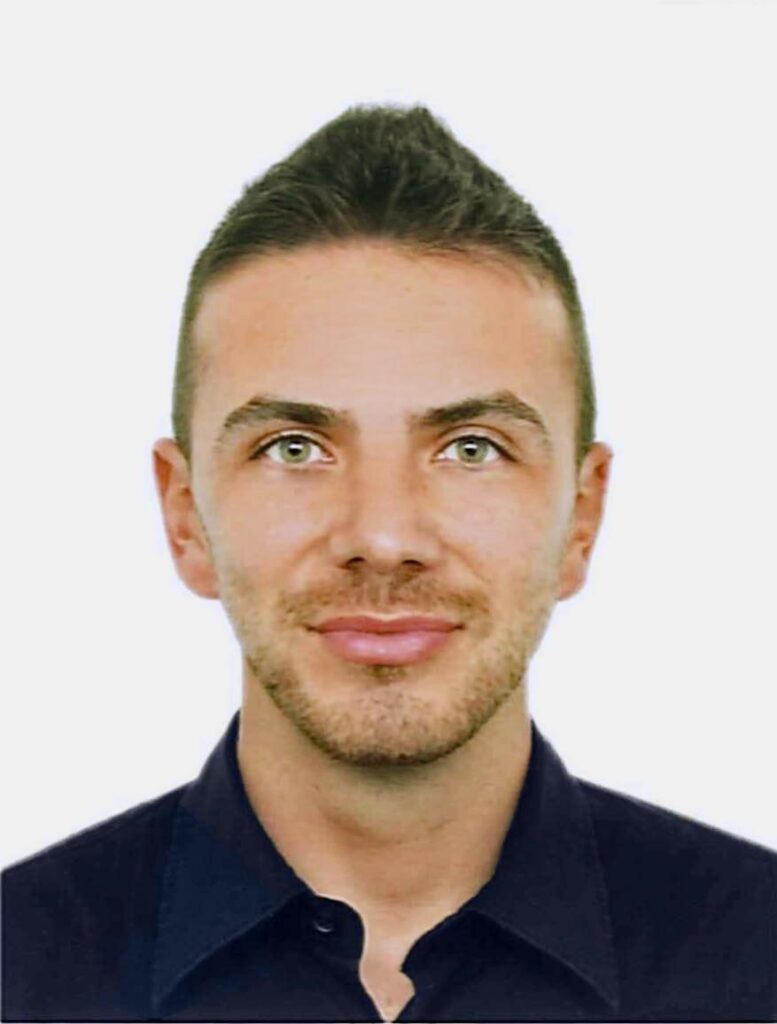
Alfonso Acosta Gonçalves
EU Comission Research & Development Climate Unit
Few are the occasions for stakeholders and climate researchers to exchange in an informal setting, although urgently needed. Events like this World Café are unique opportunities for establishing bridges between both communities, challenging each other’s views, sharing knowledge and working together towards the achievement of Paris Agreement goals.
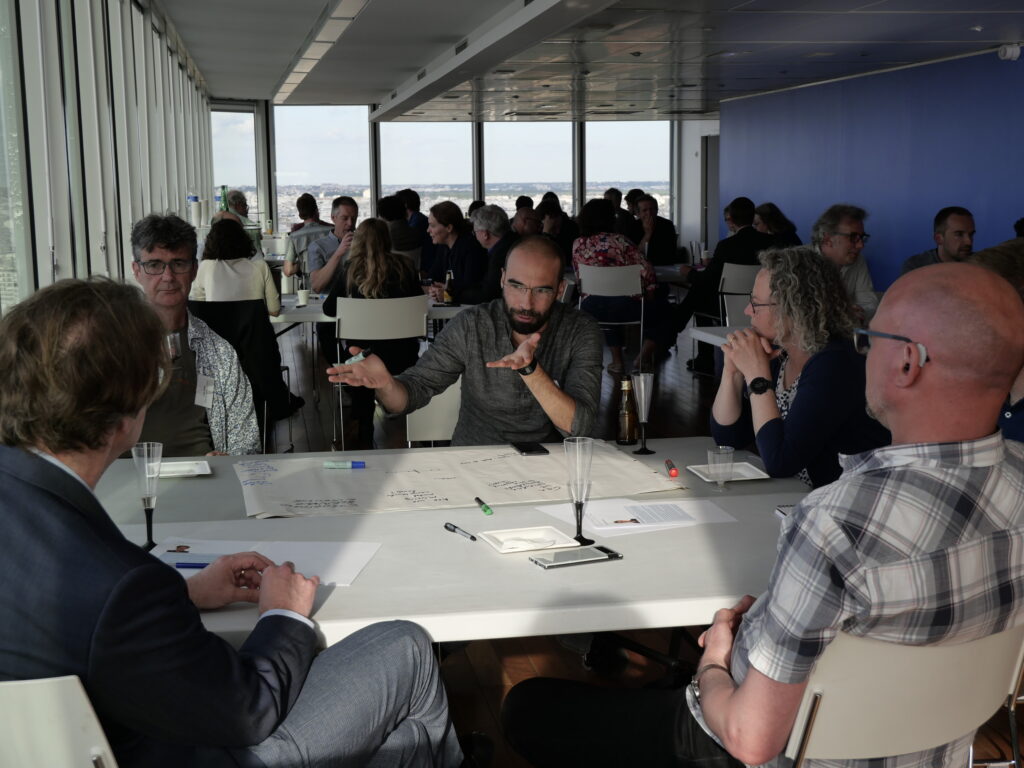
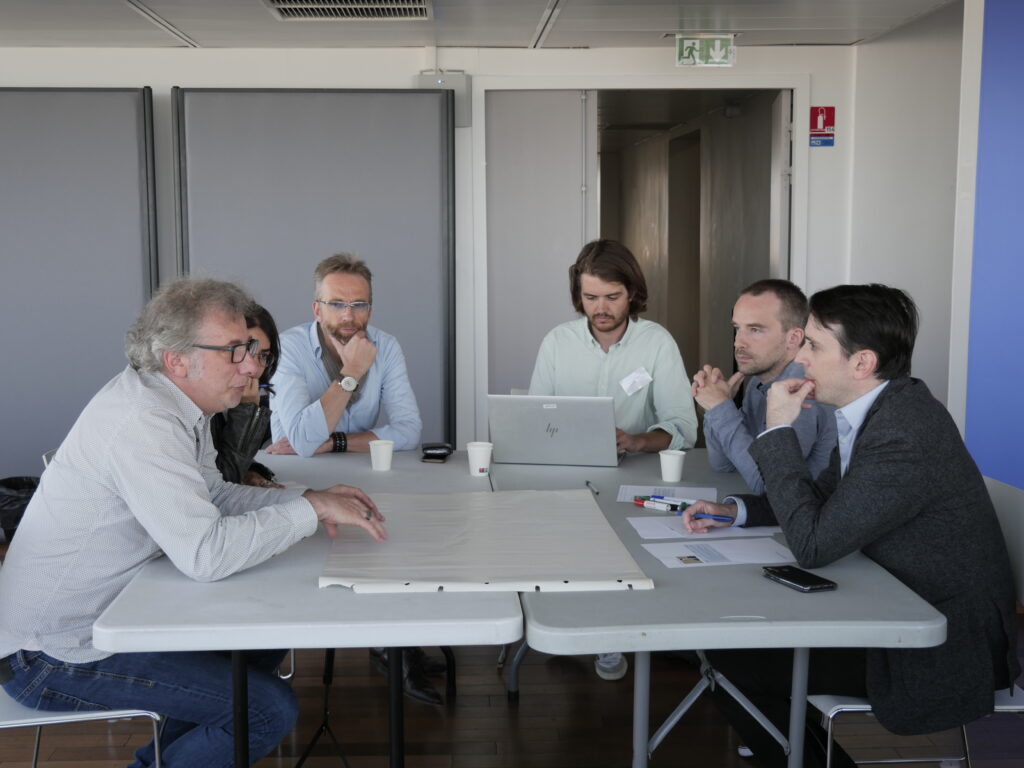
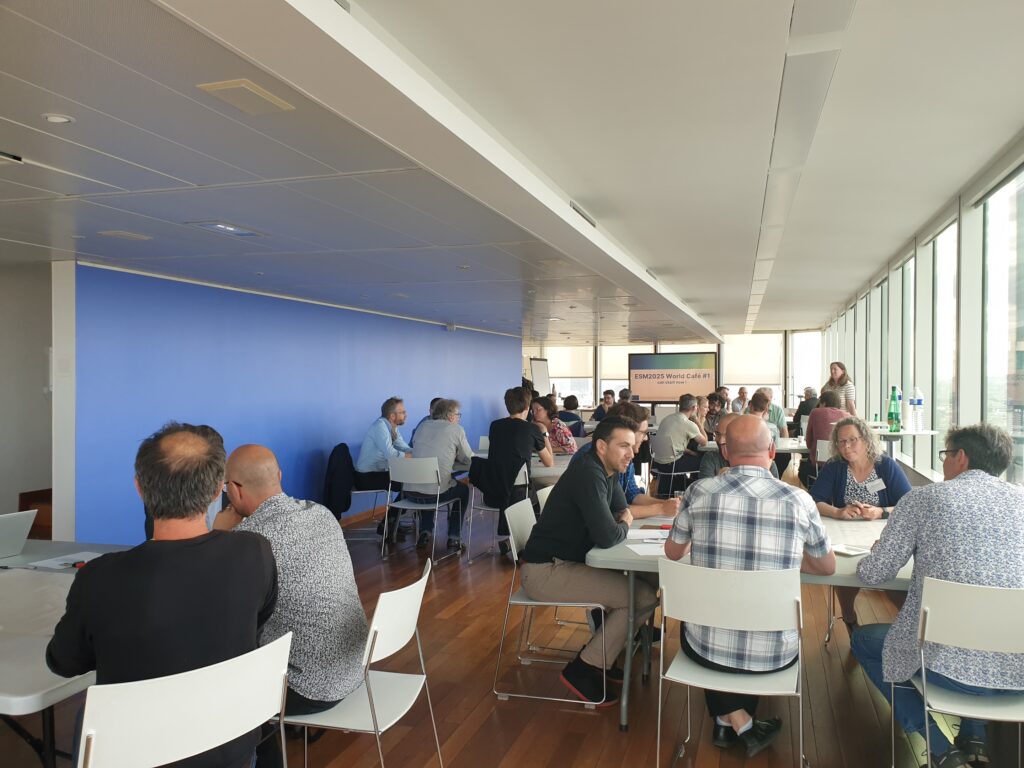
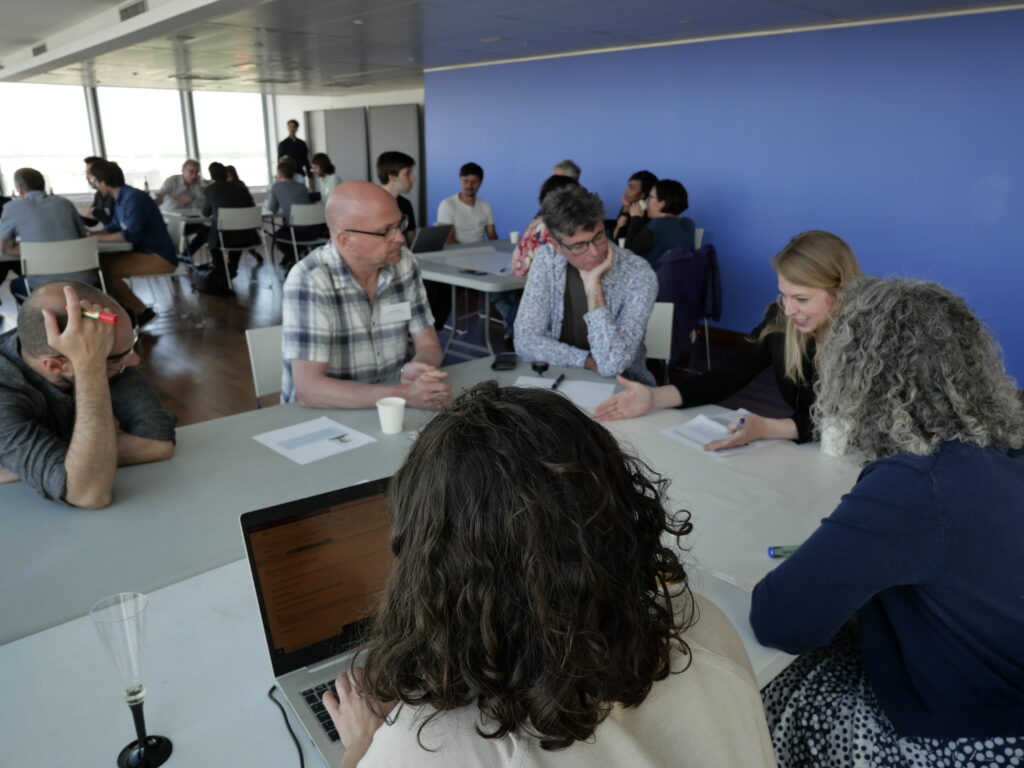
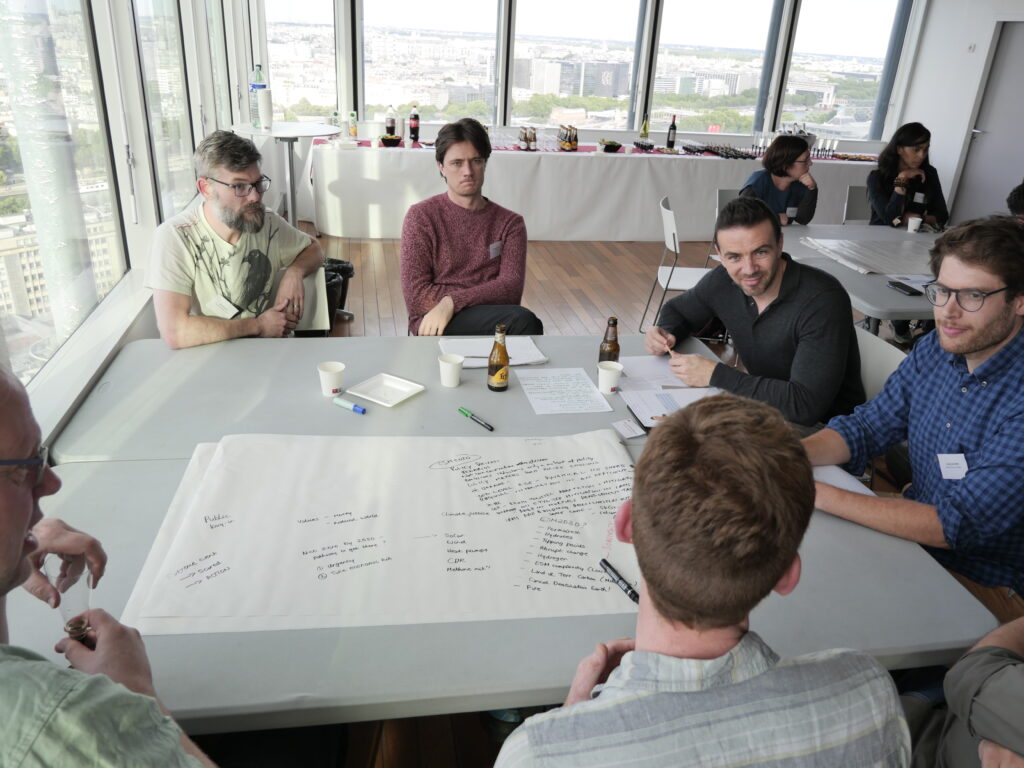
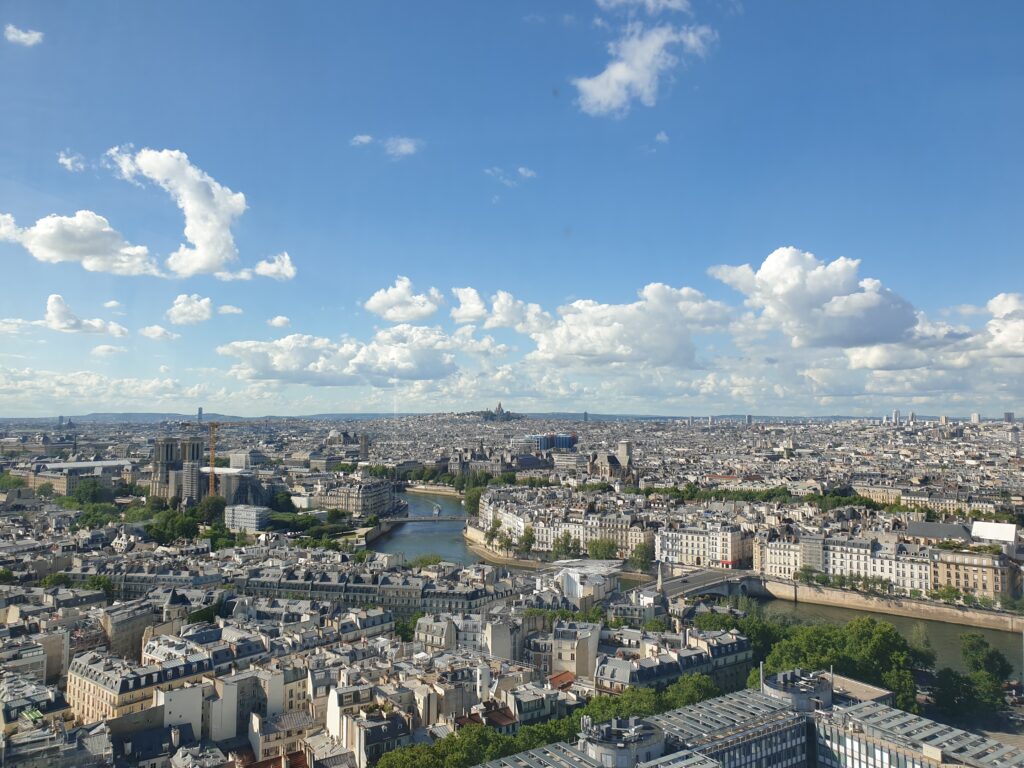
May it be the incredible views of Paris, or the richness of the exchanges (or both!), all participants seem to have appreciated their experience and to have taken home some new ideas.
Hopefully this will motivate both communities to interact more often!
